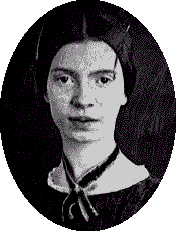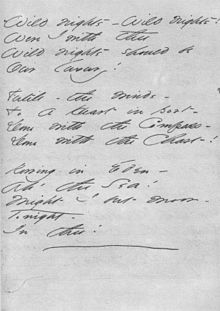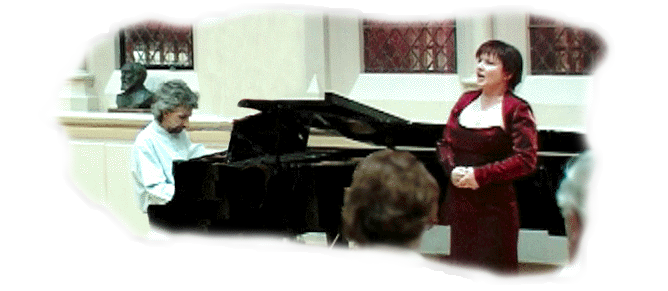

September, Just Septembers
9 Songs to words of Emily Dickinson - 2002
duration 17 minutes
I had a terror since September, I could tell to none; and so I sing, as the boy does by the burying ground, because I am afraid. [Emily Dickinson Letter 1862]
This cycle contains elements of an earlier set written in 1985/7 (performed some twenty or more times across the UK), which originally included a part for clarinet. However, only three songs have survived in anything like recognisable form, the rest being recast or composed afresh during the autumn of 2001 and winter of 2002. The set is at times both overwhelmingly intense, even desolate. Some of the earlier songs were composed after the death of the grandmother with whom I grew up and no.6 She bore it was a direct expression of grief at her passing.
The American poet Emily Dickinson has been important for many years, and has supplied the inspiration for several other pieces. Her visionary language and quirkiness strike a chord. There is also a certain resonance with her sudden outpouring of work in 1862 (stemming from an unknown experience); this mirroring my own furious flood of composition after a 12 year silence.

The chosen poems trace a path from summer to winter, both in actual seasonal references and in their metaphorical allusions. Both love lost and the passing of the seasons feature as central themes. The rose, that emblem of the richness of summer and its hopes, gives way to autumnal reminiscences and questions, and finally to the bleak loneliness of winter. Each poem betrays a seed of the "fall" to come, until the last, Winter Afternoons, seems to provide an empty finality (...Der Leiermann...).
The musical language of the songs is relatively simple and lyrical. In parts it is understated (e.g. nos. 1,7,8) and in others highly charged (nos. 2,3,4). Certain tonal centres form a "spine" to the set: an obsessive E flat pulls at the natural tonal centre of A, distorting its scale and continually intruding to produce harmonies based on whole tone patterns. Several recurring melodic motives owe their origins to this, and, as for Mahler, have provided the "seeds" for other works.
1. They dropped like Flakes
2. I showed her Heights she never saw
3. Wild Nights!
4. Midsummer
5. Nobody knows this little Rose
6. She bore it
7. Whether my bark went down at sea
8. The Sky is low
9. Winter Afternoons
PLEASE READ: THIS IS NOT A PUBLIC DOMAIN WORK.ALL RIGHTS ARE RESERVED. PRINTED COPIES ARE FOR EVALUATION PURPOSES ONLY
 SCORE (in a collected volume of my four "early" cycles)
SCORE (in a collected volume of my four "early" cycles)

Performance by Karen Radcliffe and Michael Bell
1. They dropped like Flakes
2. I showed her Heights she never saw
3. Wild Nights!
4. Midsummer
5. Nobody knows this little Rose
6. She bore it
7. Whether my bark went down at sea
8. The Sky is low
9. Winter Afternoons
If you have arrived at this page from a search engine (e.g. Google) and cannot see the menu system, please click here.